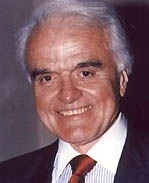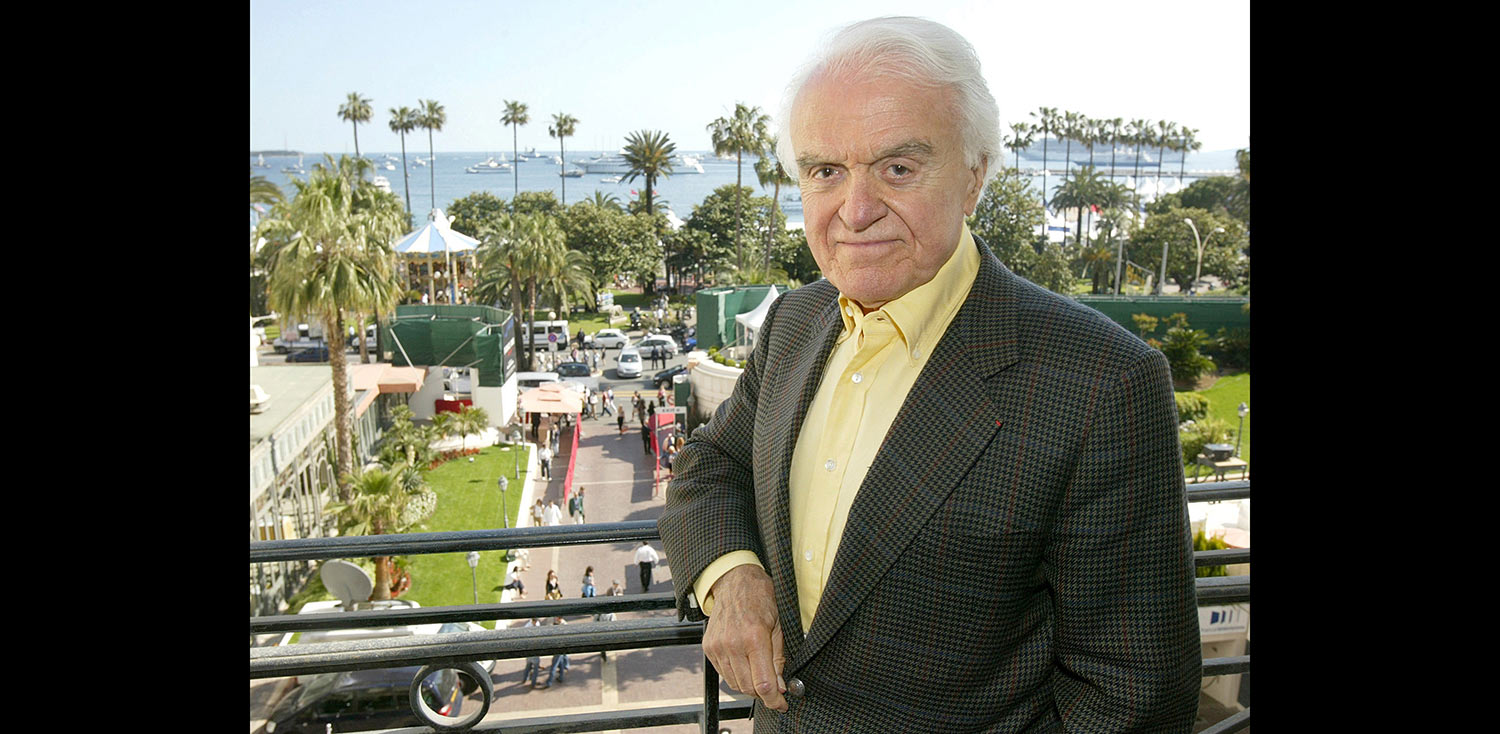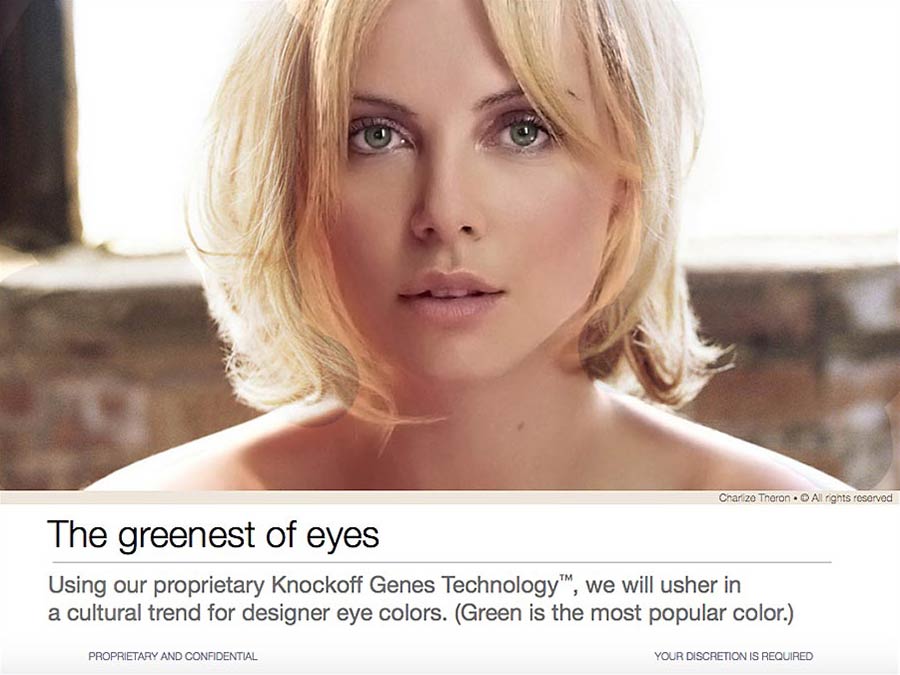This week we’re introducing a new regular feature: the Engadget Interview. Every week J.D. Lasica will speak with someone who is helping shape this crazy world of gadgets and technology that we’re all so obsessed with. We’re inaugurating it with Jack Valenti, outgoing president of the Motion Picture Association of America, who spoke to Lasica about movies, technology and whether the new breed of digital gizmos threatens Hollywood. His last day at the MPAA’s helm is Tuesday. Here are excerpts from that conversation.
 You have personally come to personify the MPAA—
You have personally come to personify the MPAA—
Well, I’ve been here 38 years, so if you last that long, you become an institution.
Some people have portrayed you as anti-technology. Not guilty?
Over time, I believe that technological innovation is the best way to go. All of our companies are working very closely with the best brains in the information technology industry right now to try to see if there’s some way that we can deal with the piracy problem.
I have said, technology is what causes the problem, and technology will be the salvation of the problem. I really do believe we can stuff enough algorithms in a movie that only the dedicated hackers can spend the time and effort to try to plumb through those 1,000 algorithms to try to find a way to beat it. In time, we’ll be able to do this, because I have great faith in the technological genius that’s out there.
You’ve made your biggest mark fighting Internet movie piracy. Why?
We know that with DVDs and VHS, we lost $3.5 billion a year worldwide due to analog or hard-goods piracy. Now, we don’t have a number on digital piracy yet but know that digital piracy will be far worse than analog piracy if left unchecked. I’ve seen camcorded movies that are uploaded to the Net and they are very, very watchable. A lot of camcording is taking advantage of the fact you can go into a theater and plug in to one of those sound systems you have in the armchair for hard-of-hearing people. And the sound comes over crystal clear-beautiful sound. These camcorders are small, they’re digital, and they do a remarkable job of duplicating the film.
How big a threat is this, and what technological measures is the movie industry taking to stop it?
If everything stayed just as it is right now, we could probably survive it, because even with broadband it takes at least an hour to bring down a movie. But I visited the labs at Caltech, and they’re running an experiment called FAST where they can bring down a DVD-quality movie in 5 seconds. The director told me it could be operative in the market in 18 months. Well, my face blanched.
We’re trying to put in place technological magic that can combat the technological magic that allows thievery. I hope that within a year the finest brains in the IT community will come up with this stuff. A lot of people are working on it—IBM, Microsoft and maybe 10 other companies, plus the universities of Caltech and MIT, to try to find the kind of security clothing that we need to put around our movies.
It may be possible to so infect a movie with some kind of circuitry that allows people to copy to their heart’s content, but the copied result would come out with decayed fidelity with respect to sound and color. Another would be to have some kind of design in a movie that would say, ‘copy never,’ ‘copy once.’ Some new business model may want to put a movie out on the Internet just after it leaves theatrical exhibition. We can’t afford to let that be copied at that juncture because it’s the [home entertainment] aftermarket where you make your profits.
You’ve traveled around the country during your tenure and spoken with a lot of young people. Do they agree with your take on this?
I’ve talked to about 3,500 students at Harvard, Yale, NYU, Stanford and Duke—eight universities in all. When I ask, how many of you believe that what you’re doing is wrong, morally and legally, most of their hands go up. But they rationalize it by saying, yes, it is a kind of stealing, but everybody else is doing it, and it costs too much to go to a movie. There’s a rationalization that goes on, but I am convinced if we keep putting this moral imperative before them and if the professors follow through on this, it will have an effect.
Do consumers have a fair use right to remix a few seconds of a Hollywood movie into a home movie project?
There is no fair use to take something that doesn’t belong to you.
That’s not fair use. If you’re a professor in a classroom, you show ‘Singing in the Rain’ to your class. You can fast forward it, and there’s no performance fee for that. That’s fair use. Now, fair use is not in the law. People are taking fair use and changing it to unfair use and claiming that it’s fair use.
Do you own any cool gadgets?
I have a TiVo set. I truly enjoy it. The movies I get on TiVo come from television, HBO or pay per view. We do not yet have video on demand—there’s semi-video on demand, things like CinemaNow and Movielink. But the technology is moving with such speed that video on demand will be here shortly.
Does Hollywood worry about gadgets like EyeTV or Snapstream, which let you record TV and movies on your computer and transfer it around the house?
No, because you’re not seeing new releases, unless you bring it down from the Internet in an outlaw form.
So there are no restrictions that Hollywood wants to place on what people can do with media on their computers?
Well, I can’t tell you that. We have to see what the technology can provide.
What would you say to a mom who wants to make a backup of her kids’ DVD movies?
When you go to your department store and you buy 10 Cognac glasses and two weeks later you break two of them, the store doesn’t give you two backup copies. Where did this backup copy thing come from? A digital thing lasts forever.
When is the next generation of DVD players coming out with new forms of copy protection?
The MPAA’s technology people have been meeting with the IT and CE [consumer electronics] people and the chip manufacturers. We have meetings every month, trying to find some way to come to some concord about how we’re going to deal with the future. It’s moving, but at a lesser velocity than I would like. It’s very hard. You’re dealing with technology, with fragile concepts. I’m not putting the blame on anybody, I’m just a fellow who likes to move. I’m an action-now fellow, and sometimes I get frustrated.
Some have suggested that tech companies need to reengineer the PC to make it a ‘trusted appliance’ for watching copyrighted entertainment. Do you share that view?
Right now, I don’t know exactly. But in time, the technology innovation is moving with such celerity that Gordon Moore’s old deal, that every 18 months a chip doubles in capacity and power, is being brought down to about 12 or 8 months. When I look at what Caltech and Internet2 are doing, it’s incredible.
Does it bother you that you’re portrayed as a villain in some quarters of cyberspace?
I don’t relish it but I know what I’m doing is right. I want to look ahead. I want to have what Mr. Churchill says is the seeing eye, to know what’s on the other side of the brick wall. I believe in change. Change irrigates every enterprise, and particularly the movie business. So, I welcome it, but I want to make sure that thievery is not going to lacerate our future.
What keeps you up at night?
Not a thing. I sleep like a baby.
How do you see the motion picture landscape in five years?
The one thing that won’t change 50 years from now is the story; the thing wherein it will catch the conscience of the king, as Mr. Shakespeare put it.
When Frank Capra was making movies, when D.W. Griffith was making movies, it was all about the story. Today, we have technological changes, and you can do all sorts of digital wizardry, but digital morphing is not a story, and a computer cannot replace the story. It merely helps you enhance your story. I think the computer is the smartest mechanism the world has ever seen, but there’s one thing a computer cannot do. It cannot predict human behavior. So that’s what is not gonna change.
Will it be hard for your successor to step into your shoes?
I was in Dallas in the motorcade on Nov. 22, 1963, and I saw that day a brave young president murdered, and a new president take over. The president is dead, long live the president, the nation goes on. No one is indispensable, I learned that day in Dallas. My successor will come into this job and he won’t be me, but he might do a hell of a lot better job than I’m doing.
What do you hope your legacy will be?
I hope people will say I never had a hidden agenda, and I never played it cute around the turns, and that my integrity stayed intact.









[…] Jack Valenti — An interview with Jack Valenti, the retiring CEO of the Motion Picture Association of America. […]